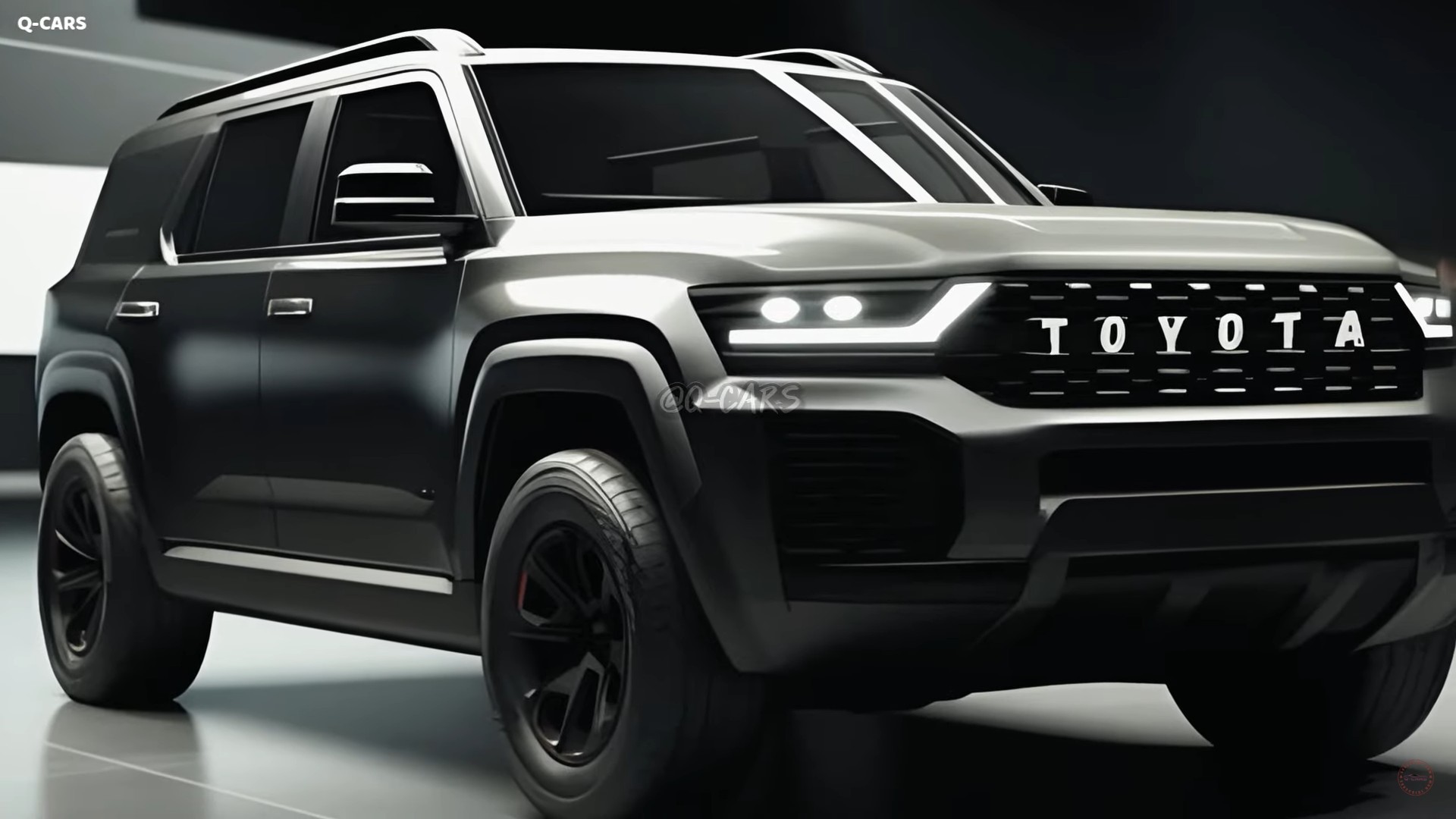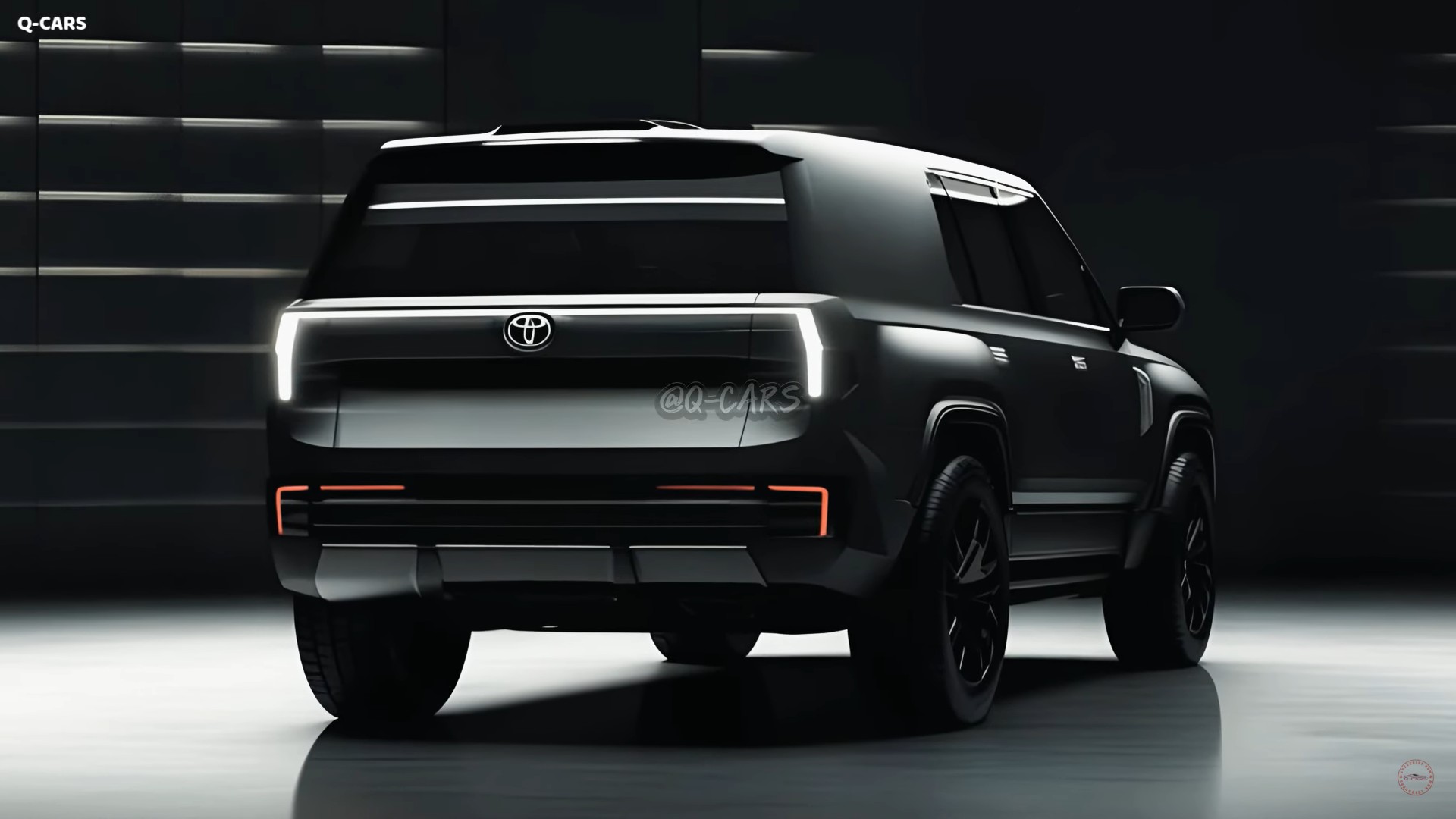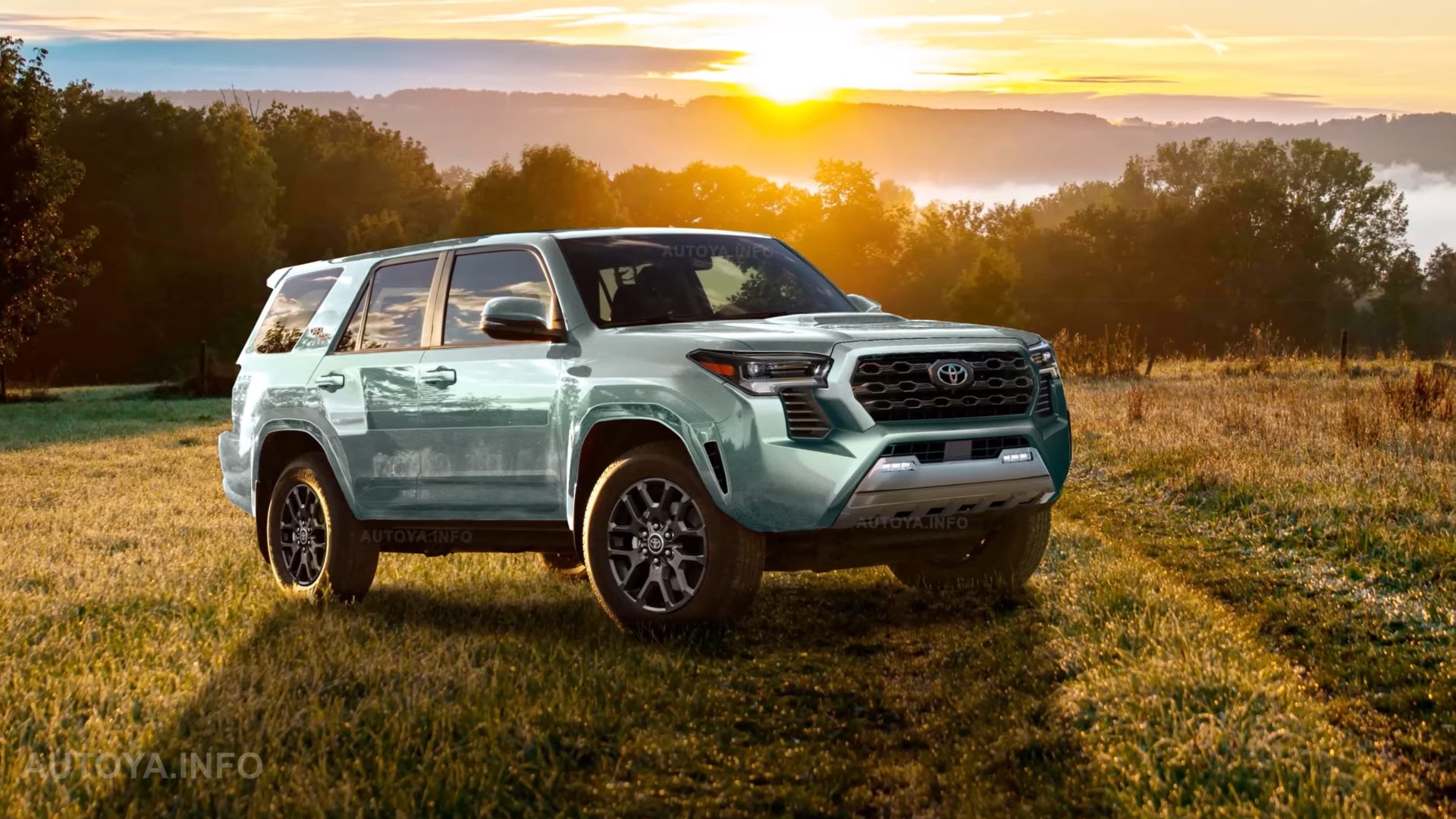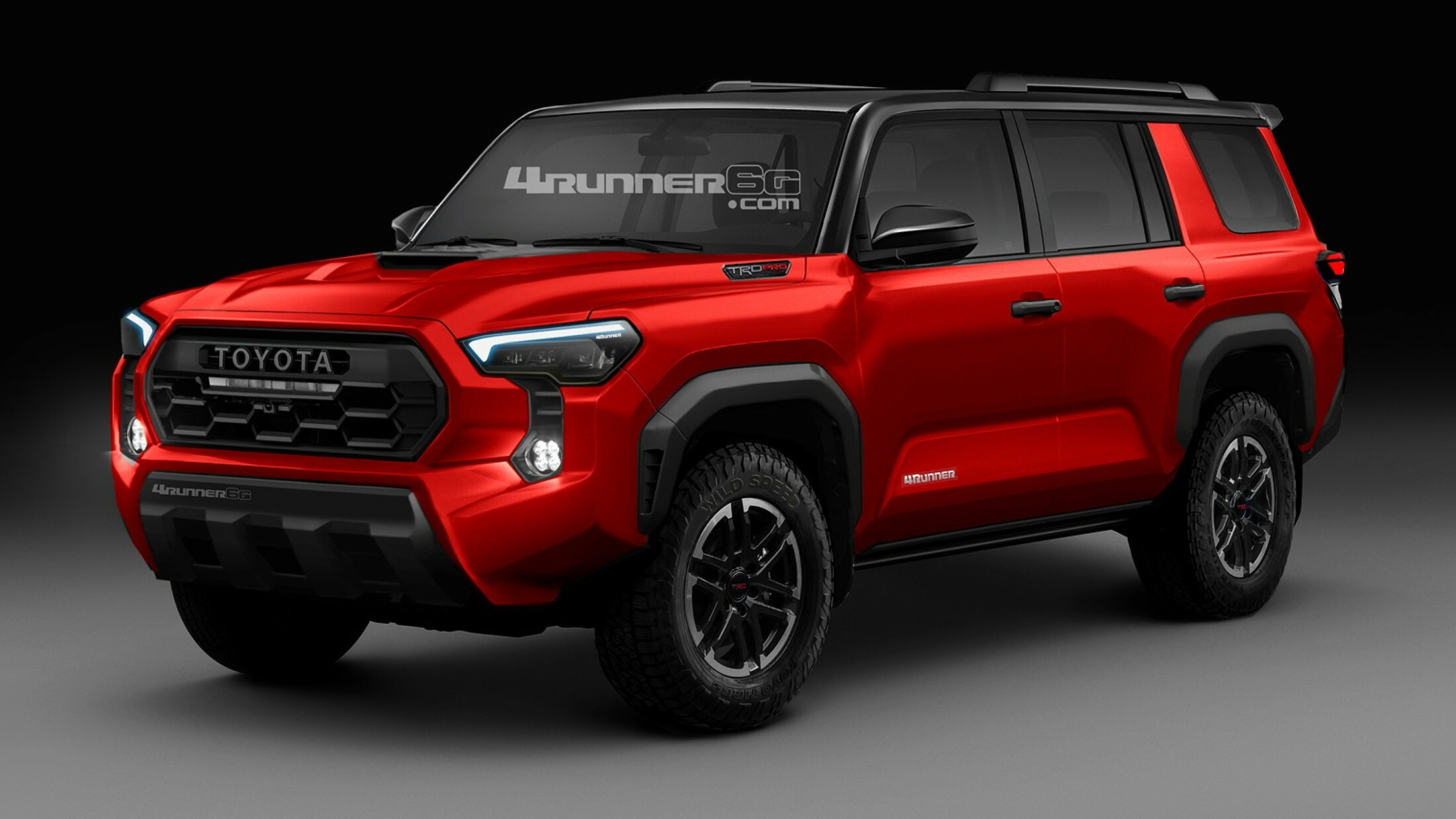The 2025 Toyota 4Runner: Fuel Efficiency in a Rugged Package
Related Articles: The 2025 Toyota 4Runner: Fuel Efficiency in a Rugged Package
Introduction
In this auspicious occasion, we are delighted to delve into the intriguing topic related to The 2025 Toyota 4Runner: Fuel Efficiency in a Rugged Package. Let’s weave interesting information and offer fresh perspectives to the readers.
Table of Content
The 2025 Toyota 4Runner: Fuel Efficiency in a Rugged Package

The Toyota 4Runner, a perennial favorite among off-road enthusiasts and families seeking rugged capability, is expected to undergo a significant evolution by 2025. While the exact details remain shrouded in speculation, the anticipation for improved fuel efficiency is palpable. This article delves into the potential fuel economy advancements of the 2025 4Runner, exploring the factors influencing its performance and the significance of these changes in the evolving automotive landscape.
A Legacy of Capability, a Future of Efficiency:
The 4Runner’s reputation is built on its unwavering off-road prowess and robust construction. However, in an era where fuel efficiency is increasingly paramount, the 4Runner’s traditional V8 engine has come under scrutiny. The 2025 model year is poised to address this concern, potentially incorporating a range of technologies to enhance fuel economy without sacrificing the vehicle’s inherent character.
Potential Fuel Efficiency Enhancements:
- Hybrid Powertrain: A hybrid powertrain, combining a gasoline engine with an electric motor, is a highly probable addition to the 2025 4Runner lineup. This configuration allows for regenerative braking, capturing energy during deceleration and storing it in a battery, which can then be used to supplement the gasoline engine, resulting in improved fuel efficiency.
- Engine Optimization: The 4Runner’s existing V8 engine could benefit from advancements in engine design and technology. These improvements might involve direct injection, variable valve timing, and improved combustion efficiency, all contributing to a reduction in fuel consumption.
- Lightweight Materials: Utilizing lightweight materials like aluminum and composites in the vehicle’s construction can further enhance fuel economy. By reducing the overall weight, the engine requires less energy to propel the vehicle, resulting in better fuel efficiency.
- Aerodynamic Improvements: Subtle aerodynamic enhancements, such as revised bodywork and underbody panels, can reduce drag and improve fuel economy. These adjustments may not be readily noticeable but can significantly impact fuel efficiency, particularly at highway speeds.
- Transmission Enhancements: The 4Runner’s transmission could be optimized to shift gears more efficiently, maximizing fuel economy without compromising performance.
The Importance of Fuel Efficiency in the 2025 4Runner:
The pursuit of fuel efficiency in the 2025 4Runner is not merely a response to evolving environmental regulations and consumer demand. It represents a strategic move to maintain the vehicle’s relevance in a market increasingly conscious of fuel consumption and operating costs.
- Reduced Fuel Costs: Improved fuel economy translates to lower fuel expenses for owners, making the 4Runner a more attractive proposition in the long run.
- Environmental Responsibility: Lower fuel consumption directly reduces greenhouse gas emissions, contributing to a cleaner and more sustainable automotive landscape.
- Enhanced Performance: A hybrid powertrain can provide an added boost in performance, particularly during acceleration and off-road maneuvers.
- Market Competitiveness: In a market where fuel efficiency is a key differentiator, the 2025 4Runner’s enhanced fuel economy will make it more competitive against rivals offering similar capabilities.
FAQs about the 2025 Toyota 4Runner’s Fuel Economy:
Q: What is the expected fuel economy of the 2025 Toyota 4Runner?
A: While specific figures are not yet available, the 2025 4Runner is expected to achieve a significant improvement in fuel efficiency compared to its predecessors. The exact figures will likely vary depending on the powertrain configuration, trim level, and driving conditions.
Q: Will the 2025 4Runner still be capable off-road?
A: Toyota is committed to preserving the 4Runner’s off-road capabilities. The incorporation of fuel-efficient technologies is not expected to compromise its ruggedness and performance in challenging terrain.
Q: What other features are expected in the 2025 4Runner?
A: Besides improved fuel economy, the 2025 4Runner is likely to receive updates to its interior and exterior design, advanced safety features, and improved infotainment systems.
Tips for Maximizing Fuel Efficiency in the 2025 Toyota 4Runner:
- Drive Smoothly: Avoid aggressive acceleration and braking, as these actions consume more fuel.
- Maintain Tire Pressure: Underinflated tires can increase rolling resistance, leading to decreased fuel economy.
- Plan Your Routes: Avoid unnecessary idling and traffic congestion by planning efficient routes.
- Use Cruise Control: Cruise control can help maintain a steady speed, optimizing fuel consumption.
- Minimize Cargo Load: Excess weight can significantly impact fuel economy.
Conclusion:
The 2025 Toyota 4Runner is poised to embrace a future where efficiency and capability coexist. By incorporating advanced technologies and design improvements, Toyota aims to enhance the 4Runner’s fuel economy without compromising its ruggedness and off-road prowess. This strategic move ensures the 4Runner remains a compelling option for those seeking both practicality and performance in the years to come. The 2025 4Runner is a testament to the evolving automotive landscape, where efficiency and sustainability are no longer compromises but rather key drivers of innovation.








Closure
Thus, we hope this article has provided valuable insights into The 2025 Toyota 4Runner: Fuel Efficiency in a Rugged Package. We appreciate your attention to our article. See you in our next article!
